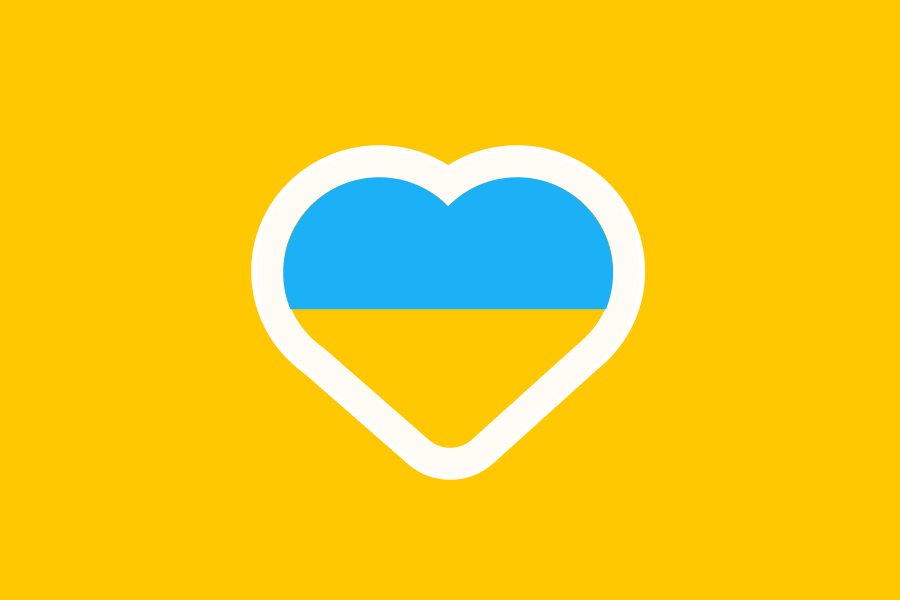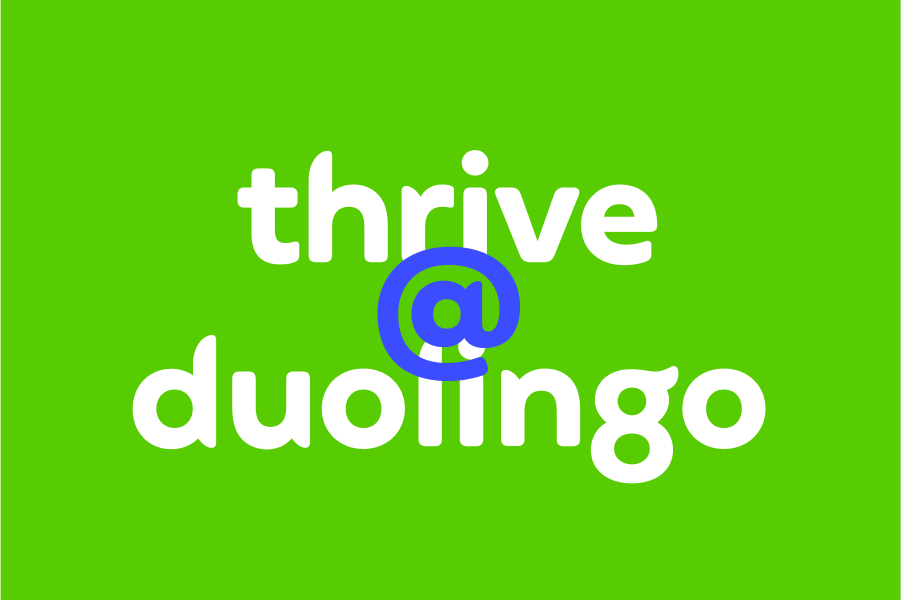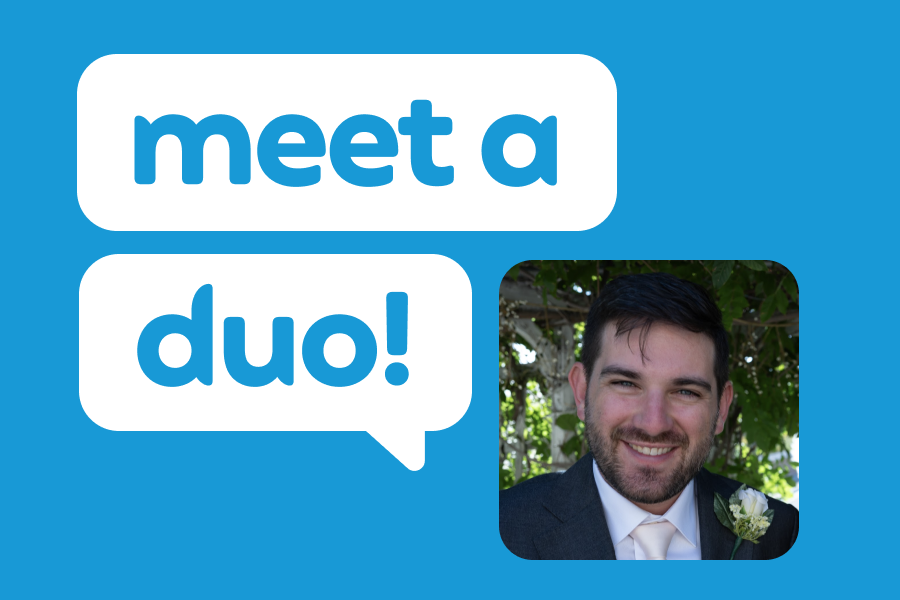We are devastated by the ongoing war in Ukraine, and stand in solidarity with Ukrainians seeking safety and everyone working towards peace. We believe that education is a human right, and our role in the world is to educate.
Here’s how we are responding to the current crisis:
Since the invasion of Ukraine began, we’ve experienced a large spike in people learning Ukrainian on Duolingo. While it’s wonderful to see that show of support and appreciation for Ukraine’s culture, it would not be right for us to profit from it. We will be donating all of the ad revenue from people studying Ukrainian on Duolingo to Ukraine relief.
These funds will support our partners at the UNHCR, IRC, and other organizations working to help refugees from Ukraine. Through these partners and others, we will also distribute codes for Duolingo Plus so refugees and their hosts can use the premium version of Duolingo for free.
The Duolingo English Test is working with partners including UNHCR and Ukraine Global Scholars to expand its Access Program and provide fee waivers so Ukrainian students can take an English proficiency test required for their university applications.
We have also heard directly from learners in Ukraine, who somehow are still finding a way to take lessons. They have expressed concern for their Duolingo streaks, so we are freezing streaks for all learners in Ukraine.
As the conflict in Ukraine continues, we’ll continue to engage with our partners and learners to ensure everyone who needs it has access to high-quality education.
— Luis von Ahn, CEO and co-founder, Duolingo
Our team has compiled a list of questions we’re hearing from our community and answered them below.
What is happening with Ukrainian language learning on Duolingo?
Since the start of the war in Ukraine, the number of people studying Ukrainian on Duolingo has increased 577% globally*. The U.S. has the most learners studying Ukrainian, and the number of U.S. learners studying Ukrainian has increased 554% since the start of the war. Ukrainian learning peaked in the U.S. the week of February 28, and remained stable since.
The number of people in Poland studying Ukrainian has grown 2677% since the start of the war. Poland is on pace to tie the U.S. in the number of Ukrainian learners by the end of March.
- Data is accurate as of March 20, 2022
Where did Duolingo’s Ukrainian course come from?
Ukrainian is a unique course in that it was developed in partnership with volunteers from the Peace Corps in 2015. It was intended partly for use by Peace Corps volunteers in Ukraine. Swahili is the other Duolingo course developed with the Peace Corps. Given the sudden surge in demand for this course, we are looking into making improvements to elements like the course audio.
What is Duolingo doing to help Ukraine?
We’re going to take the ad revenue we get from people learning Ukrainian, for at least the next year, and give it to Ukraine relief efforts. We additionally match our employee donations.
We have also been in contact with Ukraine’s Ministry of Education & Science and are discussing additional ways to support their students. For example, the Duolingo English Test will be providing fee waivers to Ukrainian students. The Duolingo English Test is also accelerating plans to launch a Ukrainian language interface.
Locally, we will be sponsoring Pittsburgh’s World Refugee Day event to assist with the resettlement of refugees in our hometown.
Is Duolingo still available in Russia and Belarus?
We are disabling all monetization in Russia and Belarus. This is to ensure that we are not paying any taxes to the Russian government, and that we are not selling customers a service that we may be unable to provide in the future. For reference, about 1% of our language app revenue came from these countries in 2021.
Duolingo is still operating as a completely free app in Russia and Belarus. We believe that education is a human right. Language learning builds empathy and connection between cultures, and we believe there is value in continuing to teach the English language for free in Russia, given the current information environment in the country.
Can I volunteer with Duolingo to create a new course to help Ukrainian people?
Duolingo no longer works with volunteers to create new courses, instead we partner with external organizations or language experts. We currently offer an English course for Ukrainian speakers, and a Ukrainian course for English speakers. The latter is being used throughout the region and the world for people seeking to learn Ukrainian.
We also teach Russian for English, Turkish, and Spanish speakers, and we have courses teaching English, Spanish, French, and German, to Russian speakers. This is important to note, since many Ukrainians know Russian.
If you’re looking to help, you can:
- Donate money to our trusted partners. This is what UNHCR and IRC need most.
- If you’re fluent in Ukrainian, Russian, Polish, or other languages, consider offering translation support to orgs in need.



